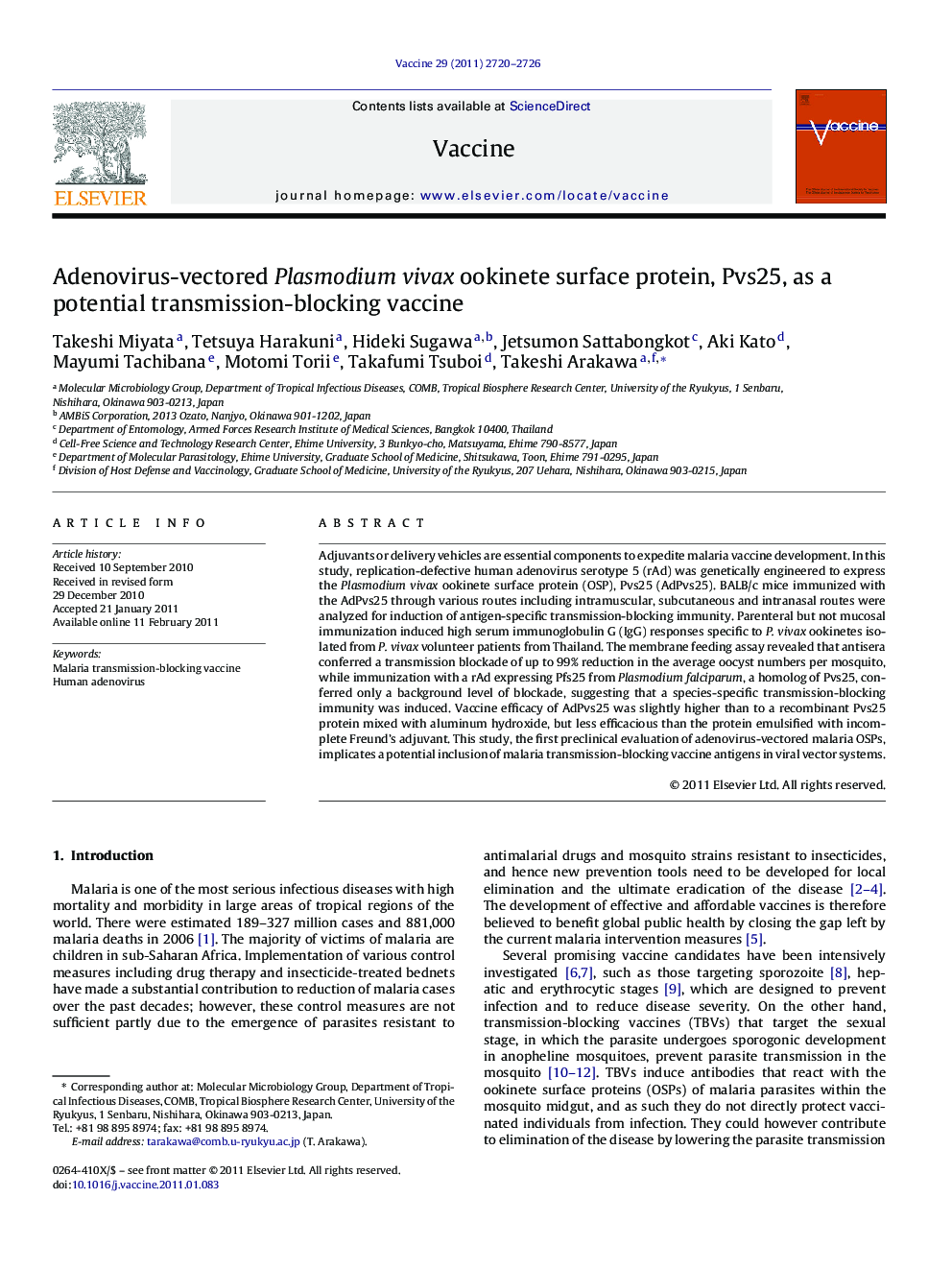| Article ID | Journal | Published Year | Pages | File Type |
|---|---|---|---|---|
| 2403588 | Vaccine | 2011 | 7 Pages |
Adjuvants or delivery vehicles are essential components to expedite malaria vaccine development. In this study, replication-defective human adenovirus serotype 5 (rAd) was genetically engineered to express the Plasmodium vivax ookinete surface protein (OSP), Pvs25 (AdPvs25). BALB/c mice immunized with the AdPvs25 through various routes including intramuscular, subcutaneous and intranasal routes were analyzed for induction of antigen-specific transmission-blocking immunity. Parenteral but not mucosal immunization induced high serum immunoglobulin G (IgG) responses specific to P. vivax ookinetes isolated from P. vivax volunteer patients from Thailand. The membrane feeding assay revealed that antisera conferred a transmission blockade of up to 99% reduction in the average oocyst numbers per mosquito, while immunization with a rAd expressing Pfs25 from Plasmodium falciparum, a homolog of Pvs25, conferred only a background level of blockade, suggesting that a species-specific transmission-blocking immunity was induced. Vaccine efficacy of AdPvs25 was slightly higher than to a recombinant Pvs25 protein mixed with aluminum hydroxide, but less efficacious than the protein emulsified with incomplete Freund's adjuvant. This study, the first preclinical evaluation of adenovirus-vectored malaria OSPs, implicates a potential inclusion of malaria transmission-blocking vaccine antigens in viral vector systems.
